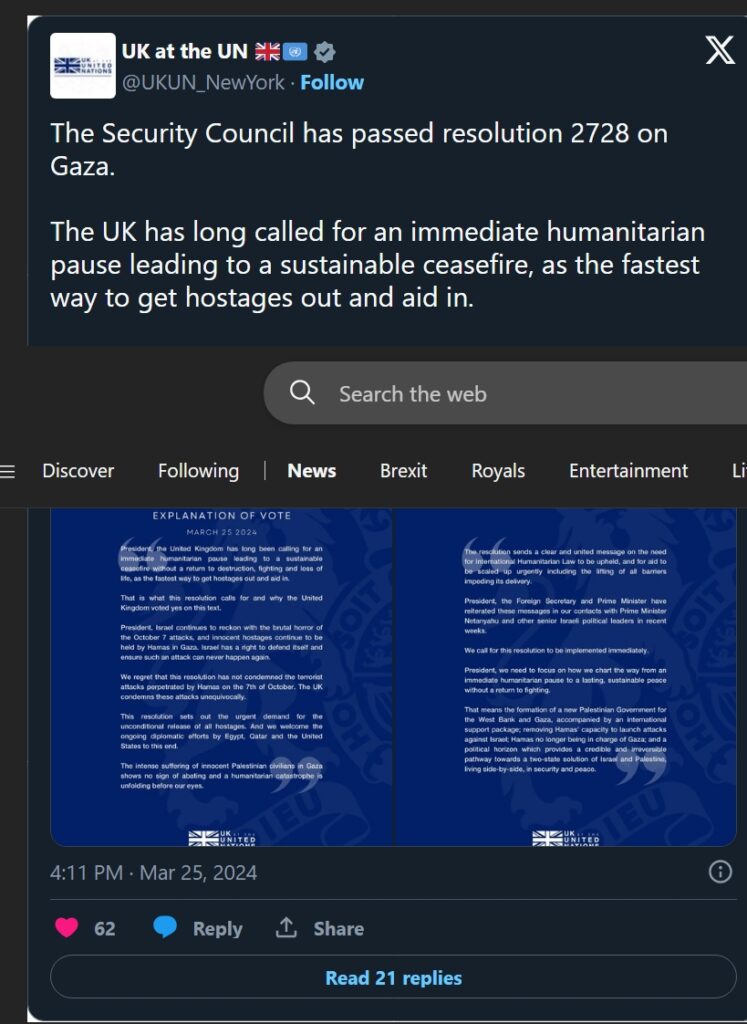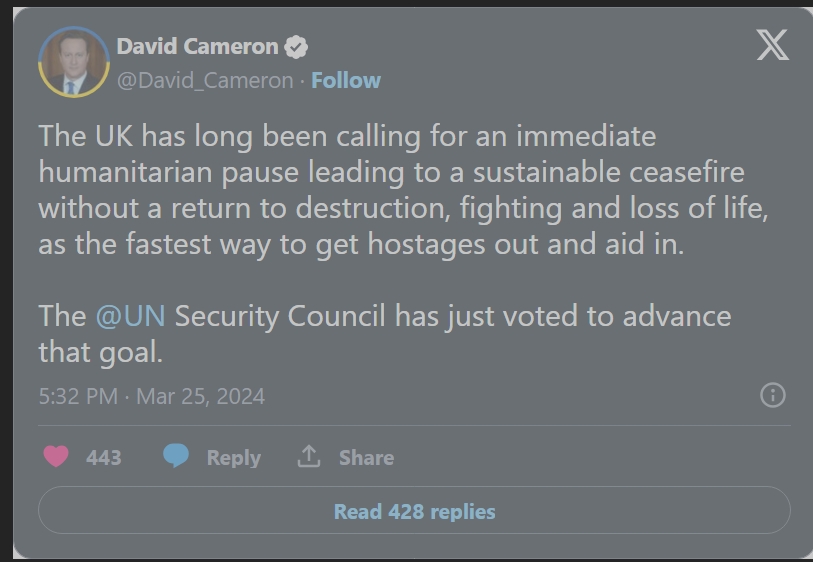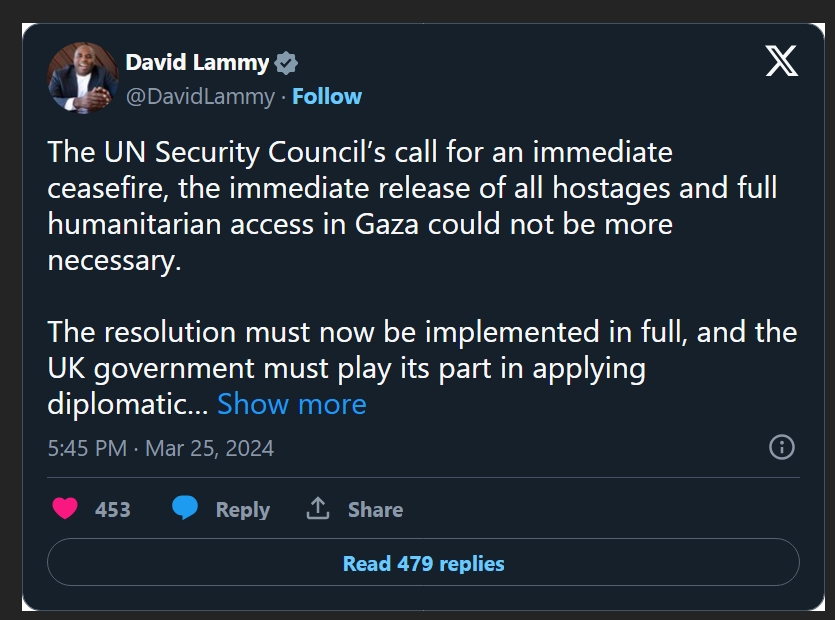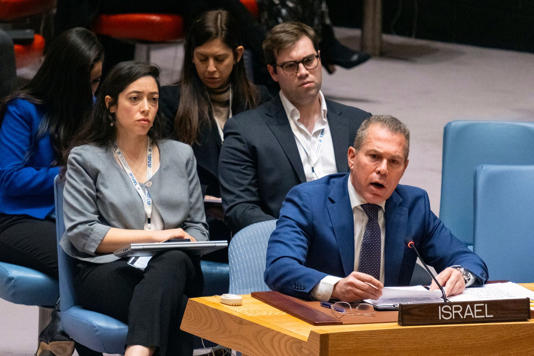LONDON:The UK backed a United Nations Security Council (UNSC) call for a ceasefire in Gaza during the Muslim holy month of Ramadan.
Downing Street said the UNSC resolution sent a clear message that the hostages held by Hamas should be released and aid should allowed in to Gaza.
The Prime Minister’s official spokesman said Israel had a right to defend itself but too many Palestinian lives were being lost, with a “clear and present risk” of a humanitarian catastrophe in Gaza.

Israel’s ally the US did not wield its veto at the Security Council and the resolution is the first time the body has called for a halt to the fighting.
The resolution did not link the demand for a release of the hostages to the ceasefire during Ramadan, which runs until April 9.
The statement outlines the UK’s stance on the recent conflict, emphasizing the importance of achieving a sustainable ceasefire. The UK government underscores the need for Hamas to be removed from power in Gaza to ensure lasting peace and prevent future attacks against Israel. Additionally, the statement acknowledges Israel’s right to self-defense while expressing concern over the humanitarian toll on Palestinians. It highlights the UK’s support for a UN resolution calling for the release of hostages and increased aid efforts.
Asked what message the Government would send to Israeli prime minister Benjamin Netanyahu, the official said: “We would obviously urge both sides to listen to that and to follow this resolution.”
Challenged over whether the UN vote would make any difference, the spokesman said: “We’ve obviously seen a number of talks in recent weeks and we believe and have previously said that we hope negotiators can reach an agreement on a temporary ceasefire as soon as possible.”
Lord Cameron, the Foreign Secretary, said the vote “advanced (the) goal” of reaching a “sustainable ceasefire” and getting hostages out of Gaza and aid into the territory.
In a statement posted on X, formerly known as Twitter, he said: “We continue to support Israel in light of the brutal horror of the October 7 attacks and the fact that innocent hostages continue to be held by Hamas in Gaza.
“The humanitarian crisis in Gaza remains severe. We’ve seen a welcome increase in humanitarian trucks getting in, but more is needed. We will continue to do all we can by air and sea, but the land access remains crucial.”

The Foreign Secretary held a wide-ranging foreign policy briefing with Conservative MPs at a meeting of the backbench 1922 Committee following the vote at the UN, which is understood to have largely focused on the conflict in Gaza.
One MP present said Lord Cameron dismissed claims over the weekend that he was considering imposing an arms embargo on Israel if the flow of aid into Gaza did not increase.
But they added that the Foreign Secretary was working as a “close friend” of Israel and, as such, did not want to see the country “in a situation where they are being prosecuted for not letting the aid in”.
Mr Netanyahu’s immediate response to the UN resolution was to cancel a planned visit to Washington by a high-level delegation in protest.
He accused the US of “retreating” from what he said had been a “principled position” by allowing the vote to pass without linking the ceasefire to the release of the hostages held by Hamas.
David Lammy MP, Labour’s Shadow Secretary of State for Foreign, Commonwealth and Development Affairs, responding to the UN Security Council’s resolution calling for a ceasefire in Gaza, said:
“The UN Security Council’s call for an immediate ceasefire, the immediate release of all hostages and full humanitarian access in Gaza could not be more necessary.

“The resolution must now be implemented in full, and the UK government must play its part in applying diplomatic pressure to make it happen. Israel’s threatened Israeli ground offensive in Rafah must not go ahead, Hamas must release all the hostages and there must be an immediate ceasefire that is observed by all sides, so aid can reach those in desperate need and avert a famine.
“A ceasefire must create the space for an intense diplomatic process toward a two-state solution to begin, with a safe and secure Israel alongside a viable and independent Palestine, where all can enjoy security, dignity and statehood. International efforts to implement this resolution must not fail.”






